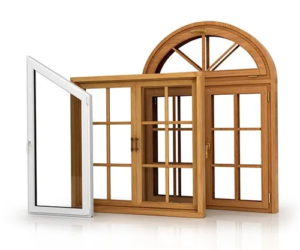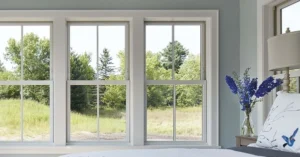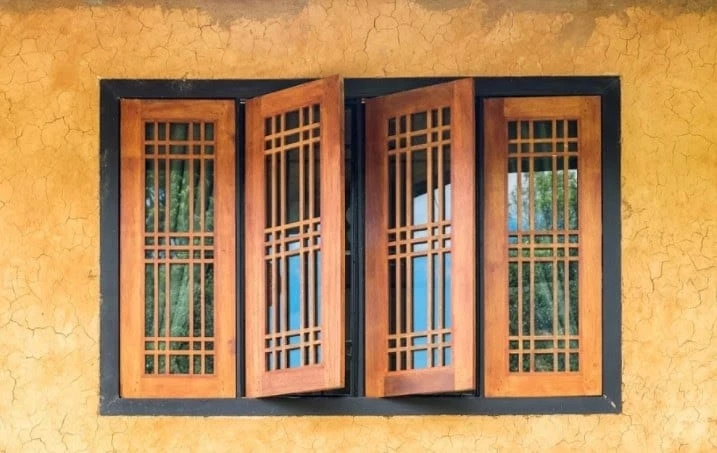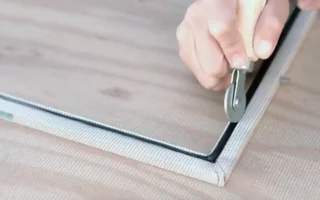Introduction to window framing
Window framing plays a crucial role in not only enhancing the aesthetics of your home but also providing structural support to the windows. Whether you opt for traditional or modern styles, framing is an essential element that should be considered.
By choosing suitable materials for your window frames, such as wood, vinyl, aluminium, or fibreglass, you can ensure durability and energy efficiency. These materials offer different benefits depending on your preferences and budget.
The purpose of window framing
Window framing serves a crucial purpose in both the aesthetic and functionality of windows. Beyond just being a decorative element, the frame provides structural support for the window itself, ensuring its stability and durability over time. Additionally, window frames help to seal off any gaps between the window opening and the wall, preventing drafts and water leakage.
The design of the frame also plays a role in enhancing energy efficiency by reducing heat loss or gain through the window. This is particularly important in regions with extreme weather conditions where proper insulation can make a significant difference in heating and cooling costs. In terms of style, window framing can complement the overall look of a room or building, adding character and charm to the space.
Whether it’s wood, vinyl, aluminium, or fibreglass frames used, each material offers different benefits in terms of maintenance requirements, longevity, and visual appeal. Ultimately,
window framing is not just about aesthetics; it is an essential component that contributes to both form and function within a space.

Traditional vs modern window framing styles
When it comes to window framing styles, there’s a wide range of options available for homeowners to choose from. Traditional window frames often feature intricate designs and ornate details, adding a touch of timeless elegance to any home. These classic styles are typically made from wood or metal, providing durability and aesthetic appeal.
On the other hand, modern window framing styles focus on sleek lines and minimalist designs. Materials like aluminium and vinyl are commonly used in contemporary window frames, offering a more streamlined look that complements modern architectural trends. With advancements in technology, energy-efficient materials have also become popular choices for eco-conscious consumers looking to reduce their carbon footprint.
Popular materials used for window frames
When it comes to choosing materials for window frames, several popular options offer both functionality and style.
Wood is a classic choice known for its natural beauty and versatility. It can be painted or stained to match any interior or exterior design scheme.
Aluminium frames are durable, lightweight, and low maintenance. They are also resistant to corrosion, making them ideal for humid climates.
Vinyl frames are affordable, energy-efficient, and easy to clean. They come in a variety of colours and styles to complement different home aesthetics.
Fiberglass frames are strong, weather-resistant, and have excellent insulation properties. They require little maintenance and can last for many years without warping or fading.
Each material has its own unique characteristics that cater to different needs and preferences when it comes to window framing choices.

Do all windows need framing?
When it comes to windows, framing plays a crucial role in both functionality and aesthetics. While not all windows necessarily require framing, the majority of them do benefit from this structural support.
Framing provides stability and support for the window structure, ensuring that it remains secure and adequately sealed within the wall. It also helps to enhance the overall look of the window by providing a polished finish that complements the architecture of the building.
In modern construction practices, most windows are indeed framed using various materials such as wood, aluminium, or vinyl. These materials offer different levels of durability, energy efficiency, and design versatility depending on your preferences and budget.
While some speciality windows may not require traditional framing due to their specific design or installation method, most standard windows will significantly benefit from proper framing techniques.
Benefits of having framed windows
Having framed windows in your home offers numerous benefits that go beyond just aesthetics.
Window framing provides structural support and stability to the window itself, ensuring it stays securely in place. This can help prevent issues such as drafts, leaks, and warping over time.
Framed windows offer increased energy efficiency by creating a barrier between the interior and exterior of your home. Properly insulated frames can help regulate indoor temperatures, reducing heating and cooling costs.
Window frames come in various materials like wood, aluminum, vinyl or fiberglass which offer different levels of durability and maintenance requirements. Choosing a suitable material for your frame can enhance the overall longevity of your windows.
Framed windows allow for customization options such as colour choices and styles to complement your home’s design aesthetic. The ability to personalize your windows adds a unique touch to your living space while increasing its value.




